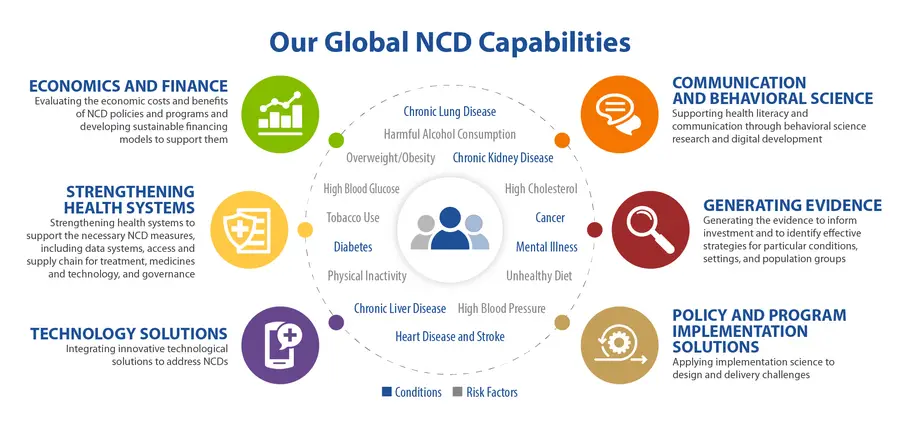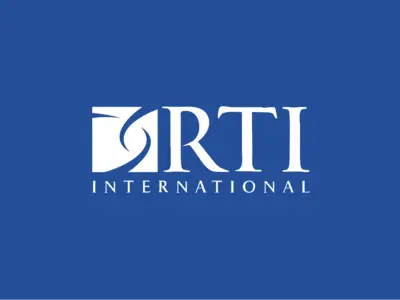Multidisciplinary, sustainable solutions to address the global burden of noncommunicable diseases
Noncommunicable diseases (NCDs) are the leading cause of human death and illness worldwide, representing around 74 percent of all global deaths. Each year more than 41 million people die from these diseases, which include cancer, heart disease, chronic respiratory disease, diabetes, mental illness, among others. The burden of NCDs is highest in low- and middle-income countries, where more than 80 percent of premature deaths are attributable to NCDs.
At RTI, we leverage multidisciplinary technical expertise, research capacity, and programmatic experience to collaborate with governments and private sector partners to prevent and manage the negative health, economic, and social impacts of NCDs. We identify how NCD approaches and interventions can be integrated, financed, and delivered within health system capacities, drawing upon experience in addressing other long-standing global health challenges—including communicable diseases such as malaria, tuberculosis, HIV/AIDS, and neglected tropical diseases; health security and pandemic threats; and reproductive, maternal, and child health. We co-produce solutions alongside our partners that are tailored to national, local, and organizational circumstances.

By the Numbers
0 +
partner countries where NCD research projects were delivered
0 +
technical reports published and/or disseminated to stakeholders
0 +
peer reviewed journal publications
Our expertise to develop sustainable solutions for NCDs includes:
- Policy and program design and implementation
- Formative research
- Program evaluation
- Strengthening health systems
- Economics and finance
- Technology solutions
- Communication and behavioral science
- Evidence generation
Related Projects
Evaluation of the YMCA Diabetes Prevention Program
Read More about Evaluation of the YMCA Diabetes Prevention Program




















